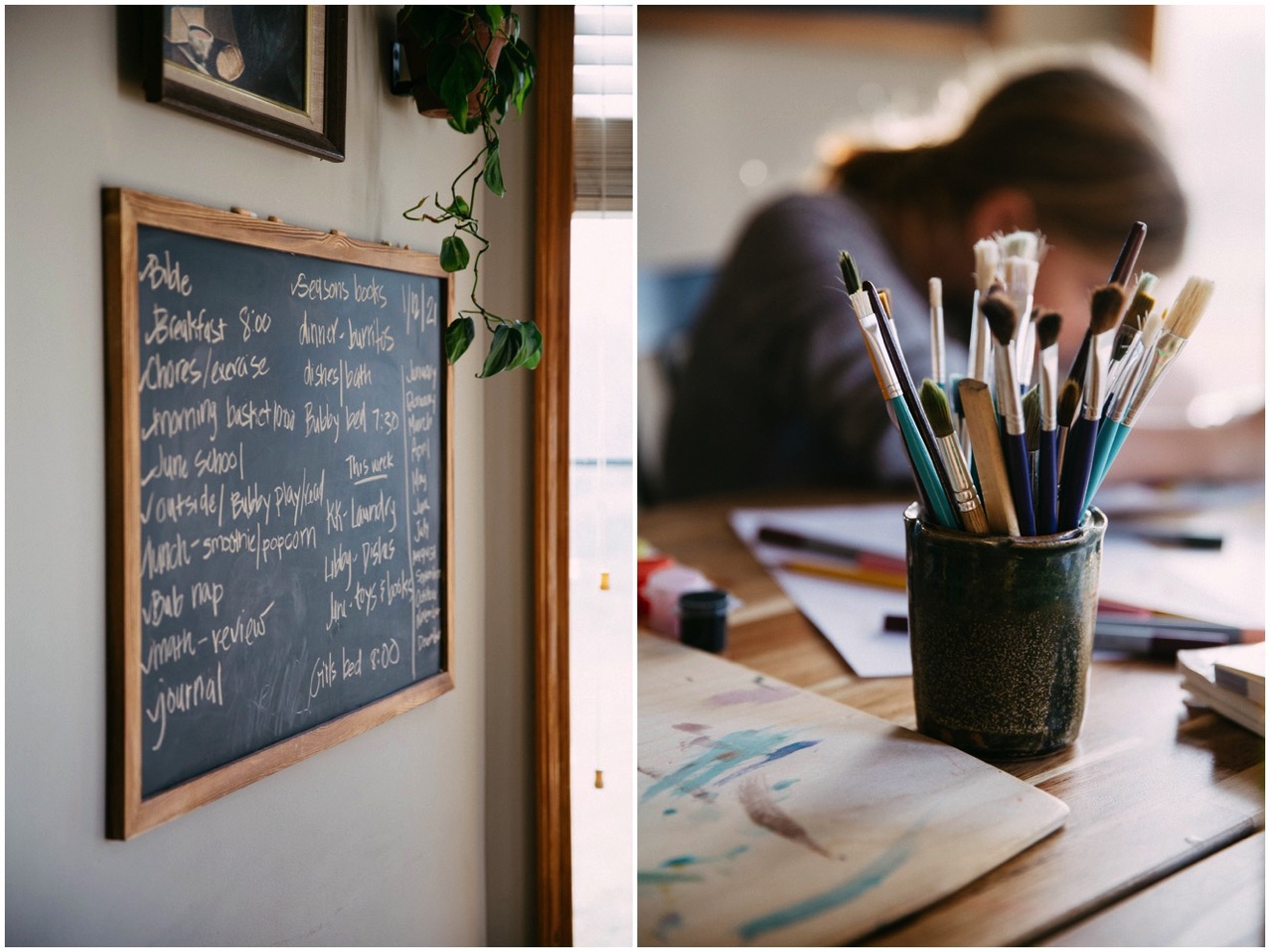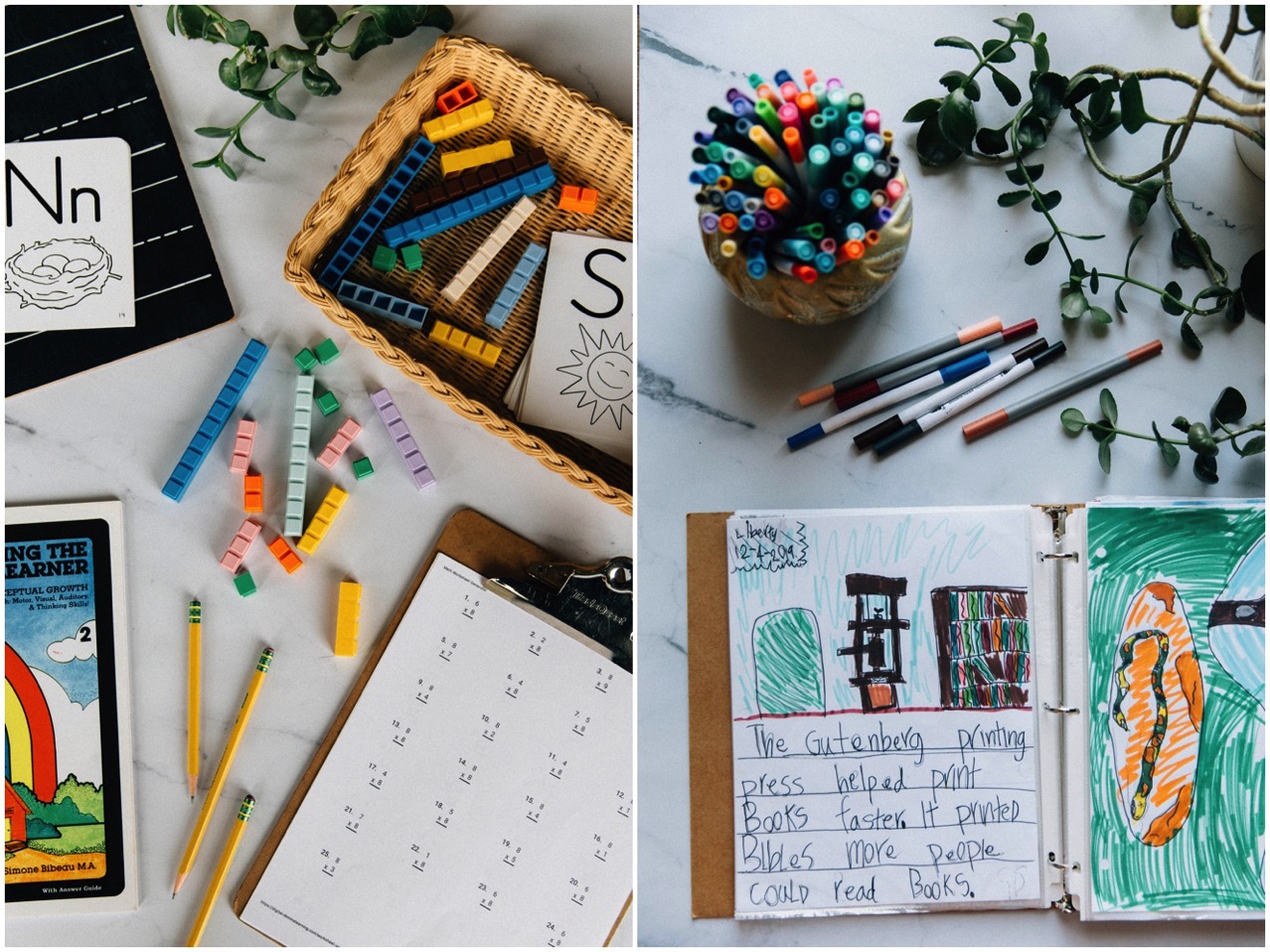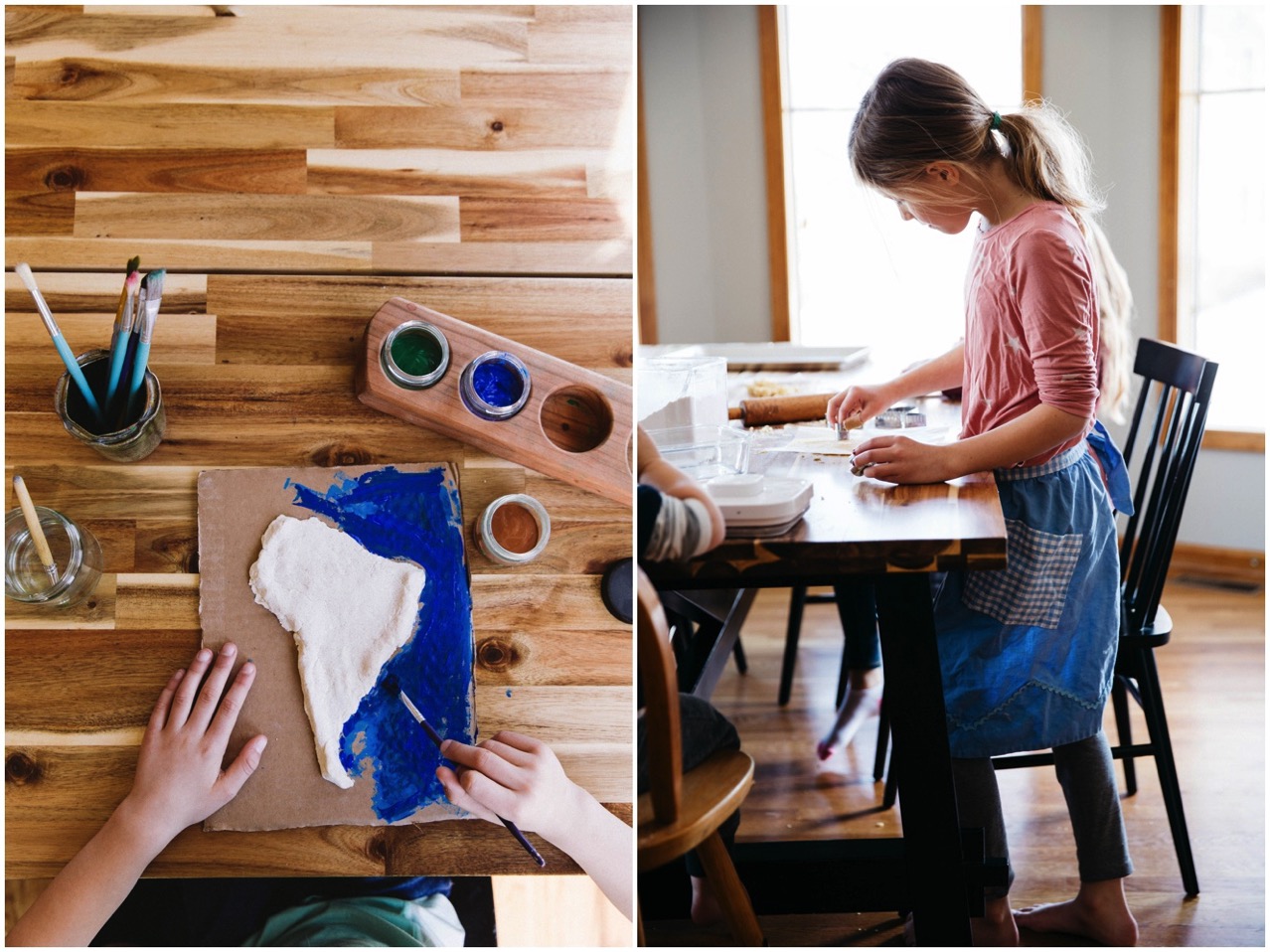What in the world is unschooling? For me it used to conjure up images of unruly minors being raised by wolves and iPads! Sounds rebellious doesn’t it?
Well I’m sorry to disappoint all you rebels out there, but unschooling is actually just a fancy word for letting your child’s interests set the curriculum. It can also go by the names “interest-led learning” or “delight-directed learning.” Unschoolers believe that children are designed to learn best outside of the institutional classroom with the curriculum of their natural curiosity. It has a bit of a spectrum to it, with the purists being student-directed all on subjects of study, while the hybrid families combine it with a more guided approach. The term was originally coined by John Holt in the late 1970’s.
When people ask me how I homeschool, I often find myself using the term unschooling because of our values and the amount of time we spend on interest-led activities. Since unschooling can mean such different things to different people, I’m going to share with you our own personal version, which I like to call Guided Unschooling.

Why We Chose Unschooling
Like most of us, I never set out to homeschool; in fact, I fought it tooth and nail! Why would I want to raise weird kids while also re-traumatizing myself with long division?
I’m always sure I’ll do the conventional thing until I don’t. As the time drew near to drop my daughter off at kindergarten, I realized that I didn’t want to send her away from me for the best hours of our day, only to have our evening hours replaced with pick-up lines and homework packets. It started me on the path of asking questions and re-thinking what I had always been told about education. I was impressed when I started to dig into the literature about unschooling (my favorites are linked below!)
We found that what we really wanted was for our children to be able to go deep into their God-given interests without being held back by arbitrary standards set by educational institutions. Research shows stronger retention and greater motivation among people who are allowed to pursue education via their own interests. We felt that our children could more easily grow to be innovative critical thinkers outside of the compulsory school model.
Our primary goal is for our children to enter their teen years equipped to take a deep dive into learning whatever it is that interests them. We have no expectations for college attendance and we are willing to support helping them pursue (and possibly monetize) whatever it is they love, whether that’s writing, engineering, basket-weaving or homemaking.
Our Personal Journeys
When my husband was a teenager, he was allowed to skip two grades and spend the majority of his final high school years learning programming and building his web development business. He got his first contracted job at eighteen and by the time he was twenty-one he had a well-paying job at a network security company making more than many career adults he knew. Though our years together I have often find him deep into educational videos, math courses or technical manuals. He believes he can learn anything he wants to without special permissions, and he does. He is a pilot, a programmer, an investor, and most importantly, a critical thinker with a penchant for being out-of-the box!
I took the conventional route and finished college. (I didn’t know there was another way!) I found employment and received offers of advancement not because of any skills my degree gave me, but simply because I’m administrative, organized and have a natural talent for communication. Unfortunately, there was never anything I learned through my four long years in college that I used in my real life. I don’t think that’s the case for every university career path, but I do find that college is often over-prescribed to many young people.
I sometimes still poke fun at David’s early 2000’s Sketchers and relaxed fit Silvertabs and all the “gaps” he must have in his education. Yet while I was struggling to buy a latte on my first job out of college, we paid off my school loans with his self-taught education in programming languages. (I am sorry to report he no longer wears oversized Silvertabs). Later, with my husband’s support and encouragement, my natural interests led me to pursue the fulfilling work of writing and photography.
These personal experiences are just another reason why unschooling is a natural fit for our family’s goals and values.

Why We Combine Unschooling with Formal Learning
I offer more guidance than the unschooling purist because I want to expose my kids to a range of interests, encourage curiosity, and equip them to take their deep learning dives when the time is right. I also know that they thrive with boundaries and anchoring routines in the home.
I started out thinking that we would primarily use a Charlotte Mason approach, but I found that we all enjoyed having quite a bit of freedom and personal choice in our learning (my kids would rather read books and watch documentaries about volcanoes that nature journal). I do find that Charlotte Mason methods are a great support to our guided unschooling philosophy. Much of Mason’s work focused on providing resources to parents educating at home, which is why her methods tend to be a natural fit for many homeschoolers. Her format includes practices that are rich in content but simple to execute, such as time in nature, well-written books, oral narrations, and short lessons for math and writing. I have never studied her original writings, but I do use several of her methods.

Math and Language Arts
Many unschooling families require no timeline or standard lessons for literacy or numeracy. This is based on the understanding that when a person is self-motivated and developmentally ready, they can advance rapidly through the levels of literacy and numeracy. In fact when a child is ready and motivated, it takes about only twenty hours to learn K-6 math!
I actually do provide formal lessons math and language arts, but academic readiness and sustainability rule our approach. Literacy and numeracy are not ends in themselves, but keys that unlock bigger worlds. We move slowly with lots of emphasis on mastery, doing a small amount each day. If my ten-year-old has just mastered times tables, I don’t rush her to the next thing in order to “catch up.” Both girls learned to read on their own separate timelines, with Libby teaching herself at age four and K.K. catching on a little after her seventh birthday.
For more information about how we approach learning to read, you check out The Everything Reading post here!

What it Looks like in Practice
Each year I pick one math and one language arts curriculum and we spend focused time on those each day. We do this three to four days a week.
Language arts looks like doing a page or two of our chosen curriculum along with a writing activity. That curriculum could be phonics one year and spelling another. A writing activity could be composing a letter, making a journal entry, responding to a writing prompt, or a fully illustrated narration on something we read. My oldest daughter has started writing her second chapter book, and this counts too.
Math looks like a short lesson with a few practice problems. We skip what we know and practice what we don’t!
We can usually do this in thirty minutes to an hour. This rhythm is in place about six months out of the year from September to May, with interest-led learning the rest of the time. When something is frustrating or not working, I try it a new way, or simply put it in a drawer for a few months and try again later! For the rest of the day my children often art, work on projects or play outdoors; we have our family routines in place and we just live life together!
For more details about how we structure our homeschool, you can download the Simple Start Formula here!
(I make a flexible plan for my year using this simple homeschool planning schema.)
Everything Else
All other traditional subjects of study are covered by reading widely and doing some hands-on projects. I’ve found that fretting too much over splitting science, history, geography and literature into separate subjects, levels or units is not only unnecessary, but can also lead to dry, manufactured lessons that no one retains.
There was a time when I saw education as a linear path leading from A to B. Now I see that it is much more akin to a web that is woven together as we encounter information and make the natural connections between all of these ideas. I use a family-centered, literature-based curriculum to give me books and project ideas. We don’t follow it to the letter, but instead choose from it like a menu for the enjoyment of learning!

What Makes it Work
Time and time again, my kids have begged for video games. I take their requests seriously, because I don’t think there is anything wrong with screens in and of themselves. But after doing the math on what that would entail, I’ve had to say no in this season of life. For interest-led learning to happen, my kids need to be bored and have big blocks of free time. When we’ve allowed screens, there is a lot of consuming and not a lot of creating! They understand that limited screens is a trade-off for being able to learn what they want and explore their interests. So far, a print-rich environment and limiting screens has been key to this approach. Modeling a reading life is also really important; my kids want to copy me when they see what I’m doing!

Established rhythms in the home (more about that here) and a strong family culture of creativity and learning are the guardrails to the stereotype of permissive parenting and unprofitable activities that so many fear when they think of unschooling. (You can read a bit about how we do chores and rest times here!)
Not only have I seen the fruit of interest-led learning in our own lives, but I have also read incredible stories of what children were able to do when left to follow their interests without the arbitrary standards of institutional education standing in their way. (Thomas Edison is my favorite unschooler! Have you read his biography?)
Here are my favorite books on the subject of unschooling and delayed academics:
Weapons of Mass Instruction by John Taylor Gatto
Better Late than Early by Dr. Raymond Moore (The physical book is really expensive and hard to find, but you can listen to this radio interview here and get a very good idea of his philosophy!)
How Children Fail by John Holt